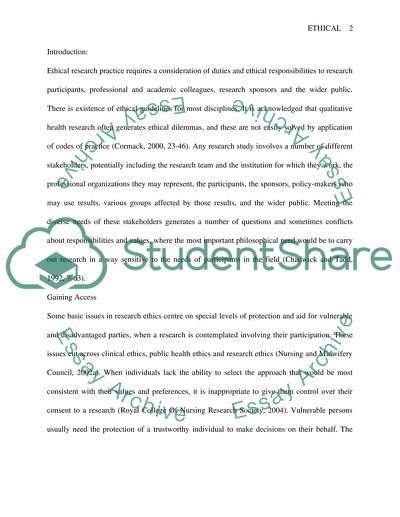Cite this document
(“Ethical Clinical Research Essay Example | Topics and Well Written Essays - 2500 words”, n.d.)
Retrieved from https://studentshare.org/science/1520228-ethical-clinical-research
Retrieved from https://studentshare.org/science/1520228-ethical-clinical-research
(Ethical Clinical Research Essay Example | Topics and Well Written Essays - 2500 Words)
https://studentshare.org/science/1520228-ethical-clinical-research.
https://studentshare.org/science/1520228-ethical-clinical-research.
“Ethical Clinical Research Essay Example | Topics and Well Written Essays - 2500 Words”, n.d. https://studentshare.org/science/1520228-ethical-clinical-research.


